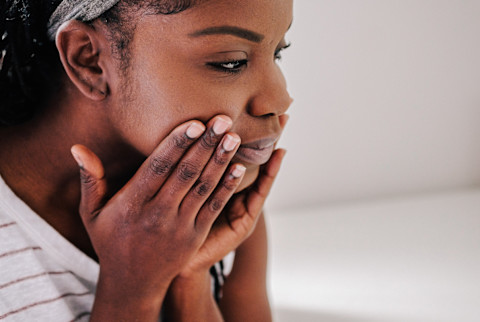Does Oily Skin Actually Age Slower? I Asked Skin Experts

From navigating risky DIY skincare recipes to sifting through affiliate-driven content, separating fact from fiction on social media regarding skincare can be challenging. However, not everything is fraught with false claims.
Take the recent buzz around skin types and aging, for example. Some users claim one skin type ages slower than the other. This may sound like some TikTok rambling, but there’s actually some science to back it up.
To come, the truth behind these murmurs from qualified skin experts.
So, does oily skin age slower?
According to dermatology nurse practitioner Jodi Logerfo, Ph.D., there is some research to document this correlation. “There was a study that was done in China that investigated the aging patterns and their contributing factors.
In this study, oily skin seemed to be more protected against wrinkling and facial laxity than dry skin,” she says, referring to a 2009 survey study published in the Journal of Zhejiang University Science1.
Within this study, there was less facial wrinkling and laxity observed in the oily skin subgroup, which, Logerfo says, proposes that skin types may be related to the rate of skin aging. “But to what extent is not known,” she adds.
Board-certified dermatologist and MOHS surgeon Margarita Lois, M.D. agrees with the sentiment, explaining the underlying reasons this can be true in some cases.
First, she notes, oily skin looks shiny because of the increased sebum production, which keeps the skin hydrated. “Moisturized skin can maintain its elasticity better, reducing the formation of fine lines and wrinkles,” Lois explains.
She adds that sebum also has some antioxidant properties because it contains vitamin E, which helps to protect the skin from free radicals that lead to oxidative stress and ultimately speed up the physical signs of aging.
What’s more, the layer of oil on the skin’s surface acts as a physical barrier to environmental stressors such as pollution and harsh weather conditions. “This protective layer helps to reduce the damage caused by these external factors, which can contribute to skin aging,” she says.
In a nutshell, the excess oil produced by this skin type works to moisturize and protect the skin, providing a slight advantage over dry skin which has to seek out hydration and physical protectants through topical care.
This is akin to how a well-hydrated complexion appears more elastic and displays fewer fine lines, leading some individuals to misinterpret the symptoms of dry, dehydrated skin as premature fine lines
How to support skin longevity regardless of skin type
So while it’s true that oily skin can have some advantages when it comes to skin aging, it’s certainly not the only, nor the leading determinant of how your skin will show age.
Other factors like genetics, sun exposure, topical skin care routines, diet, and exercise play a significant role in how your skin changes as the years pass.
Plus, even those with super oily complexions in their teens, 20s, and 30s can adopt a dryer skin type with age. “It is common for people to start noticing changes in their skin, including reduced oiliness, as they enter their 40s and 50s,” Lois says.
Below, find a few tips to navigate these changes effectively.
- Oily skin types still need to moisturize…but often will prefer the texture of a gel or gel-cream formula. These are lighter weight, but still help to support the skin barrier. When an oily skin type is under-moisturized from the outside, the skin is tricked into producing even more sebum, which can then lead to breakouts. The bottom line: Everyone needs moisturizer, and oily skin types are no exception.
- Dry skin types can become dewy and plump…but it takes some effort. For the best results, consider adding a hydrating serum, nourishing moisturizer, and an occlusive oil to your skin care routine. This way you plump, soften, and protect the skin. A glowy finish is a major plus.
- Take note of skin changes as you age…and remember that aging skin tends to need more moisture. The internal production of hyaluronic acid, ceramides, and sebum all dip with age, so consider swapping your lightweight gel for a richer cream when this change occurs.
- There’s more you can do to support skin longevity…including topical products like retinol, regularly exfoliating your skin, taking hydrolyzed collagen supplements, and of course, using SPF daily and reapplying on those days spent outside.
- Finally, remember aging is a privilege…because it’s easy to get caught up in the race to erase wrinkles. Taking care of your skin is important (it is your largest organ, after all) but getting down on yourself for showing any signs of aging is not going to help your health (or your skin) in the long run.
The takeaway
It’s true that oily skin can show signs of aging at a slower rate, much due to the presence of sebum, and thus moisture, on the skin helping to protect it from stressors. Still, other factors play a much larger role in how your skin ages, such as genetics, diet, sun exposure, and so on. Here, a deeper dive into why skin gets dryer with age.
